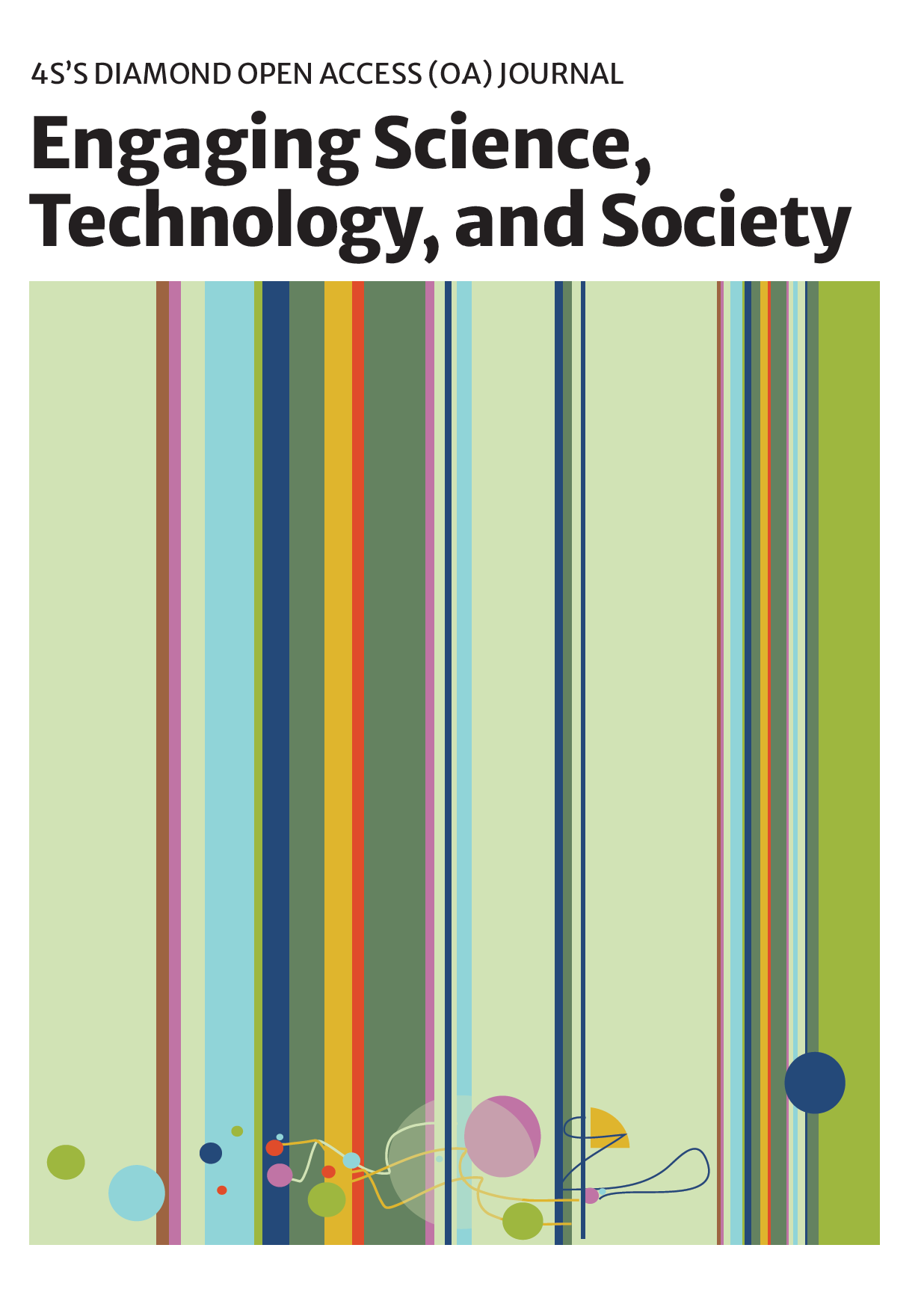
Open-Access Journal Engaging Science, Technology, and Society
The Publications Committee of the Society for Social Studies of Science solicits nominations and proposals for Editor(s) to lead the 4S-sponsored diamond open access journal, Engaging Science, Technology, and Society, see the full expression of interest here.

Toward this end, Engaging Science, Technology, and Society will be a site of experimentation with new forms of writing and publication. We will be a big tent that creates opportunities for those who formally identify with science and technology studies to publish alongside scholars from a range of other fields whose work speaks to the relationship between science/ technology and society/ culture. Finally, Engaging Science, Technology, and Society will seek to be relevant and accessible to a wide array of audiences from STS scholars and undergraduate students to science and technology practitioners, policymakers and activists.
Engaging Science, Technology, and Society, the open access journal of The Society for Social Studies of Science, aims to be a venue for realizing these openness objectives. Toward this end, we are interested in publishing informed and rigorous work that takes risks, insightfully challenges established conceptual orientations and methods, and speaks boldly. We are committed to thorough and constructive double-blind peer review and consequent revision that will lead to the highest quality articles, and we will endeavor to produce work that is clear and engaging reading for multiple audiences.
The Difference—and Promise—of ESTS
Published On: Dec 31 2025
Aalok Khandekar, Clément Dréano, Noela Invernizzi, Ali Kenner, Duygu Kaşdoğan, Grant Jun Otsuki, Angela Okune, Sujatha Raman, Tim Schütz, Federico Vasen, A N Windle, Emily York
In this final editorial for the 2020–2025 Editorial Collective, we reflect on how we have worked to action on our key editorial commitments, which included: cultivating greater transnationalization in the field, deepening open...
What Do We Mean When We Say Carbon Capture and Storage? STS and the Open Questions of a Technology in Emergence
Published On: Dec 31 2025
Vivian Underhill, Jessica Smith
Carbon sequestration is a relatively recent phrase that refers to a broad suite of technologies meant to minimize the amount of carbon emitted to the atmosphere. The Intergovernmental Panel on Climate Change (IPCC) and many scientific...
How Transnational is 4S? Institutional Scaffolding and the Long Road to a Global STS
Published On: Dec 31 2025
Noela Invernizzi, Sofía Foladori-Invernizzi
This article examines the transnationalization of the Society for Social Studies of Science (4S), analyzing its evolution from a predominantly North American and Eurocentric organization to a more globally inclusive scholarly...
When ‘Open’ is Still Far from Good Enough: The Work of Counter-Mapping with Political Software
Published On: Dec 31 2025
Luis Felipe R. Murillo, Erin McElroy
What does “openness” mean when it comes to crafting digital tools and infrastructures for housing justice action research? This question is particularly urgent as global internet companies unleash new geospatial technologies...
